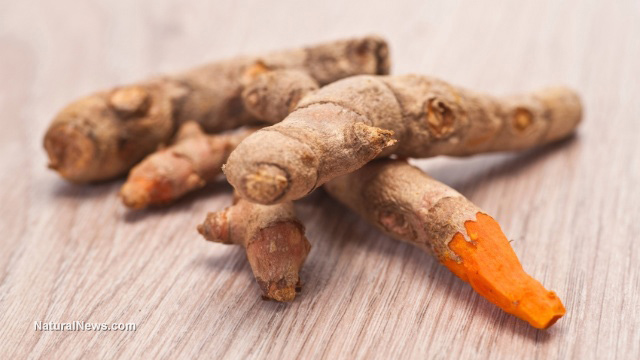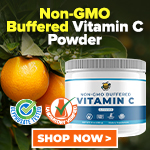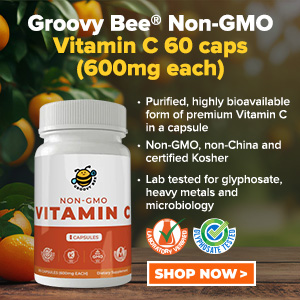Turmeric vs. Tuberculosis: This superfood can supercharge your immune system for robust protection
Monday, June 06, 2016 by: Amy Goodrich
Tags: turmeric, tuberculosis, drug resistance

(NaturalNews) Turmeric, ginger's little cousin, has gained a lot of popularity in recent years, and for some good reasons, too. It has been used for ages in Ayurvedic and Chinese medicine to treat a wide range of ailments. It owes its many medicinal uses to its active ingredient curcumin, which is also responsible for the distinctive yellow color and spicy, bitter flavor.
Curcumin is a polyphenol that possesses strong anti-inflammatory, anticancer and antioxidant properties. It has been linked to reducing inflammation, relieving pain, reducing blood clots and detoxifying the body. Now, a group of experts from Colorado and China suggests it may hold the key to fighting drug-resistant tuberculosis (TB), too.
Curcumin may fight antibiotic resistance
TB is an extremely infectious lung disease caused by the bacterium Mycobacterium tuberculosis. It easily spreads from one person to another via the air. While it mostly affects the lungs, it can also damage the brain, kidneys and spine.According to the Center for Disease Control and Prevention (CDC), one-third of the world's population is thought to be infected with TB. The likelihood of TB turning into its active form depends on a variety of factors, including lack of sufficient medical care and immunosuppression due to malnutrition.
In 2014, 9.6 million cases of active TB were reported which resulted in 1.5 million deaths. 95 percent of these deaths are linked to low- and middle-income countries as resources and treatment are often scarce or non-existing.
While TB is fairly easy to treat with a cocktail of antibiotics, the past few years more and more people are developing multidrug-resistant TB (MDR-TB), which is very hard to treat.
However, a new study, published in the journal Respirology, suggests that they may have found an agent, extracted from a common pantry spice, to fight the bacteria that causes MDR-TB.
Supercharge your immune system
Dr. Xiyuan Bai and his team found curcumin to be a potent apoptosis inducer. This is a mechanism used by macrophages, a special kind of white blood cells involved in the immune response, to clear out foreign substances such as bacteria, viruses, cancer cells or cellular waste.In their experiments, they used an in vitro human macrophage infection model to study the effects of curcumin extracts on Mycobacterium tuberculosis. Curcumin was able to boost the macrophages' ability to kill and eliminate the tuberculosis bacteria. The process relies on the inhibition of a cellular molecule, called nuclear factor-kappa B.
These new findings could lead to new treatments to fight drug resistance and save lives. However, scientists note that more research is needed to confirm these results. For their next studies, they hope to find similar results in an animal model.
"Our study has provided basic evidence that curcumin protects against Mycobacterium tuberculosis infection in human cells," Dr. Xiyuan Bai, lead author of the study, said in the statement. "The protective role of curcumin to fight drug-resistant tuberculosis still needs confirmation, but if validated, curcumin may become a novel treatment to modulate the host immune response to overcome drug-resistant tuberculosis."
If you are interested in learning more about how common pantry staples can improve your health and happiness the natural way, join the Natural Medicine, Healing & Wellness Summit here.
Sources for this article include:
DailyMail.co.uk
MedicalDaily.com
NCBI.NLM.NIH.gov
Science.NaturalNews.com
Medicine.News
Turmeric at FETCH.news
Get independent news alerts on natural cures, food lab tests, cannabis medicine, science, robotics, drones, privacy and more.
Take Action: Support Natural News by linking to this article from your website
Permalink to this article:
Embed article link: (copy HTML code below):
Reprinting this article:
Non-commercial use OK, cite NaturalNews.com with clickable link.
Follow Natural News on Facebook, Twitter, Google Plus, and Pinterest
- Newly released JFK files reveal Pentagon's role in creating Lyme disease and covid in the same lab
- Trump nominates VACCINE ZEALOT Susan Monarez to lead the CDC, sidelining RFK Jr.'s reform efforts
- BEWARE: USDA allows genetically engineered vaccines to infiltrate organic food production
- Obama accused of laundering USAID funds to fuel global protest movements, regime change operations
- HUGE: Putin claims 2020 election fraud in U.S. sparked Ukraine war, calls for peace talks with Trump
- Chris Rufo finally reveals abuse liberals unleashed on his wife and young kids...
- Deep State in disarray: Trump's funding freeze sows chaos, Democrats vow legal battle
- STARDUST, a secretive Israeli-US startup, plans risky solar geoengineering experiment to BLOCK OUT THE SUN
- Trump shows his true colors
- $2B Roundup verdict: A landmark blow to Bayer and a win for health freedom
- Trump's greatest betrayal so far: Accelerating Middle East wars, silencing dissent, and serving Zionist masters
- Outrageous government fraud: $312M in COVID loans went to children as young as 9 months old
- Festive flavors: The sweet history, nutritional profile and health benefits of pecan pie
- Elon Musk: Aliens could be here on Earth RIGHT NOW
- SWEET SABOTAGE: CIA's secret war on Soviet sugar revealed in JFK files
- “Behind the Green Mask”: Rosa Koire exposes the hidden agenda of UN Agenda 21
- Dr. Mike Yeadon releases 15-minute testimony - WATCH - about genocidal intent of COVID “vaccines”
- “Forever chemicals” in drinking water drive alarming cancer surge, new study warns
- Elon Musk: Aliens could be here on Earth RIGHT NOW
- EPA advisor admits the agency is funneling billions to climate groups ahead of Trump’s return to White House
- Trump reverses course on Gaza plan, says “nobody is expelling Palestinians”
- Reclaim your health: How midlife exercise reverses years of inactivity
- A lack of integrity in Academia: Harvard professor found GUILTY of fraudulent research to promote CRT theory
- Space war brewing? Russia threatens to destroy Starlink satellites
- Big Pharma's $8 Billion bribery scheme exposed: how doctors are pushed to prescribe junk science, not heal
- Mike Adams Sermon 66: God will DESTROY ISRAEL for its wickedness
- Rep. Nancy Mace introduces bill to ban biological males from female facilities on federal property
- Survival 101: Effective EMF blocking techniques
- 5 Simple steps to boost your brainpower: How to strengthen executive function in a distracted world
- Historian warns Israel may be entering an “IRREMEDIABLE DECLINE”
- Florida takes a stand: DeSantis proposes permanent ban on mRNA vaccine mandates
- RFK Jr.'s SSRI antidepressant investigation sparks liberal meltdown, exposes Big Pharma's dangerous game
- New York politicians push bill allowing governor to indefinitely detain the unvaccinated on a whim
- Sales of survival bunkers rise following Russia’s use of the Oreshnik hypersonic ballistic missile
- Pilots report mysterious lights 'moving at extreme speeds' across Oregon skies
- Newly released JFK files reveal Pentagon's role in creating Lyme disease and covid in the same lab
- EPA advisor admits the agency is funneling billions to climate groups ahead of Trump’s return to White House
- The Health Ranger releases “Vaccine Zombie” song and music video, using AI-animated zombies for the music video
- The pandemic as a tool for INDOCTRINATION: Understanding “The Indoctrinated Brain” by Dr. Michael Nehls
- California's social media censorship law struck down: A victory for free speech or a threat to online safety?
- Dr. Mike Yeadon releases 15-minute testimony - WATCH - about genocidal intent of COVID “vaccines”
- Congratulations to the FULLY UNVACCINATED as you resisted the COVID-19 PROPAGANDA MACHINE fueled by over $100 BILLION
- Mike Adams releases country western hit single: Goin’ Back in Time is Comin’ Home
- RFK Jr. clears key hurdle: Sen. Susan Collins backs controversial HHS nominee, signaling a new era for health policy
- Mike Adams releases music poetry sensation: A Child of God
- Mike Adams releases new song and music video: Nothing More Disgusting Than a Globalist
- Unpacking the Lies That We’ve Been Fed – new song and music video released by Mike Adams, the Health Ranger
- Trump administration takes on global censorship: A new frontier for free speech advocacy
- Florida takes a stand: DeSantis proposes permanent ban on mRNA vaccine mandates
- “Why we influenced the 2020 elections”: Facebook files reveal the coordinated effort to bury the Hunter Biden laptop story
- Ex-FBI Chief EXPOSES disgraceful government coverups of Oklahoma City Bombing, Kennedy assassinations, 9/11 WTC, and "Terrorism" as plot to destroy Constitution
- Michigan sheriff announces criminal investigation into 2020 election crimes, Dominion Voting Systems
- Israeli soldiers accused of even more torture and abuse in the West Bank
- Federal judge backs Trump's mass firings, clearing path for government downsizing
- Red Cross issues warning to stop blood plasma donations from vaccinated people
- Scientists confirm: GENIUS brain function can be spontaneously unleashed in humans without any apparent cause
- EPA advisor admits the agency is funneling billions to climate groups ahead of Trump’s return to White House
- HYSSOP: What research reveals about the health benefits of this ancient holy herb
- Two containers with completed ballots fall out of truck in Florida
- Fully vaccinated about to see “tsunami” of illness and death, warns virologist
- Today I asked our AI language model “Neo” about which phytonutrients or phytochemicals can block the spike protein related to SARS-CoV-2 … Here is what it answered…
- Global leaders unite to clamp down on “misinformation” with UN-backed Cascais Declaration
- BREAKING: 2025 NDAA authorizes mandatory military draft of WOMEN across America… as Pentagon pursues global NUCLEAR war with both Russia and China at the same time
- Michael Yon warns of a ZIONIST TAKEOVER in Trump’s second administration
- BOMBSHELL: DNA testing kits are a SCAM to develop ethnic-specific bioweapons
- Ozempic and Wegovy weight loss drugs are injectable LIZARD VENOM PEPTIDES that may unleash a devastating wave of organ failure… side effects align with symptoms of SNAKE BITES
- Israeli soldiers accused of even more torture and abuse in the West Bank
- These 13 countries just signed an agreement to engineer a global FAMINE by destroying food supply
- NASA admits that climate change occurs because of changes in Earth’s solar orbit, and NOT because of SUVs and fossil fuels
- RFK Jr. clears key hurdle: Sen. Susan Collins backs controversial HHS nominee, signaling a new era for health policy
- Sermon 30: How Jesus reveals Caesar’s FAKE CURRENCY and FALSE AUTHORITY
- Coriander seeds: Ancient medicine backed by modern science
Science News & Studies
Medicine News and Information
Food News & Studies
Health News & Studies
Herbs News & Information
Pollution News & Studies
Cancer News & Studies
Climate News & Studies
Survival News & Information
Gear News & Information
News covering technology, stocks, hackers, and more



"Big Tech and mainstream media are constantly trying to silence the independent voices that dare to bring you the truth about toxic food ingredients, dangerous medications and the failed, fraudulent science of the profit-driven medical establishment.
Email is one of the best ways to make sure you stay informed, without the censorship of the tech giants (Google, Apple, Facebook, Twitter, YouTube, etc.). Stay informed and you'll even likely learn information that may help save your own life."
–The Health Ranger, Mike Adams












































